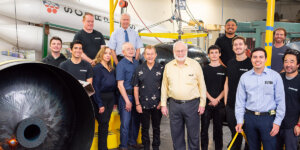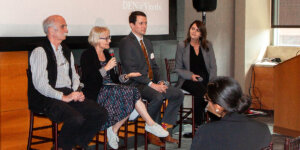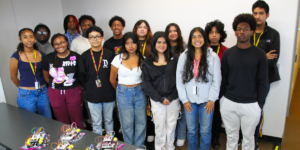
Image credit: Istock
Deep technology, or scientific and engineering innovations that disrupt and spur the creation of future technologies, are often spun out of universities. They have been critical to bolstering the nation’s competitive edge.
With a new, $15 million award announced by the National Science Foundation (NSF) on August 25, 2021 engineers and scientists from top research universities across the Western United States will form a new consortium, I-Corps Hub: West Region, to help advance new technologies and incubate emergent companies that can move breakthrough discoveries from the lab to the marketplace. The new I-Corps Hub program is part of NSF’s expanded effort to cultivate new inventions and ventures in deep technologies.
The NSF I-Corps Hub: West Region will be led by the University of Southern California Viterbi School of Engineering in partnership with the University of Colorado Boulder and the University of California-Los Angeles, and will include as affiliates the California Institute of Technology, the Colorado School of Mines, The University of New Mexico, the University of Utah and the University of California-Riverside. For the past six years, these universities have trained more than 925 entrepreneur teams through their participation in the NSF I-Corps program.
Now, USC and its partners will lay the groundwork to launch and support startups, both university and non-university, through training, mentoring and programming throughout the West. Together, these universities will bring campus resources, talent and global networks, including relationships with accelerators and national labs, to support lean startups in their development.
The NSF I-Corps Hub: West Region will also foster a culture of invention, innovation and entrepreneurship, leading to the creation of successful deep tech ventures by engineers, scientists and entrepreneurs who are people of color, and from the many diverse backgrounds of the Western United States.
“For 10 years, the NSF I-Corps program has been critical to fostering the creative spirit and entrepreneurship that enables NSF-funded research to be translated into new products and services and contribute to the nation’s economy,” said NSF Deputy Assistant Director for Engineering Linda Blevins. “I am delighted to launch the first of our I-Corps Hubs, which will form the foundation for strengthening and scaling this innovation ecosystem. The I-Corps Hubs will bring together diverse scientists and engineers, entrepreneurs, business leaders and industry partners from every part of our country, providing everyone with an opportunity to solve key challenges and spur economic growth, including new startups and new jobs.”
As the program grows, the hub will also add new university affiliates each year, thus, further fostering the ecosystem of innovation in the Western United States.
“The Innovation Corps Hub designation builds on the innovation and creativity of USC and our partner institutions to ensure technologies are commercialized and lead to economic growth and greater quality of life,” said USC Provost Charles F. Zukoski. “The principal investigator of the I-Corps Hub, USC Viterbi School of Engineering Dean Yannis C. Yortsos, has the experience and enthusiasm to ensure that this is a successful endeavor.”
“We are thrilled to be part of this inspired, inaugural effort by the NSF to contribute to the advancement of deep technology innovation and its enrichment by engaging the diverse and innovative talent of the Western United States. We are honored and humbled by NSF’s confidence and trust,” said Yannis C. Yortsos, dean of the USC Viterbi School of Engineering and the principal investigator of the NSF Award.
In addition to providing training and hosting technology scouting showcases that give entrepreneurs an opportunity to demonstrate their value to potential funders, the NSF I-Corps Hub: West Region will study incentives as well as impediments to further develop new, world-changing technologies.
Published on August 25th, 2021
Last updated on November 3rd, 2021












